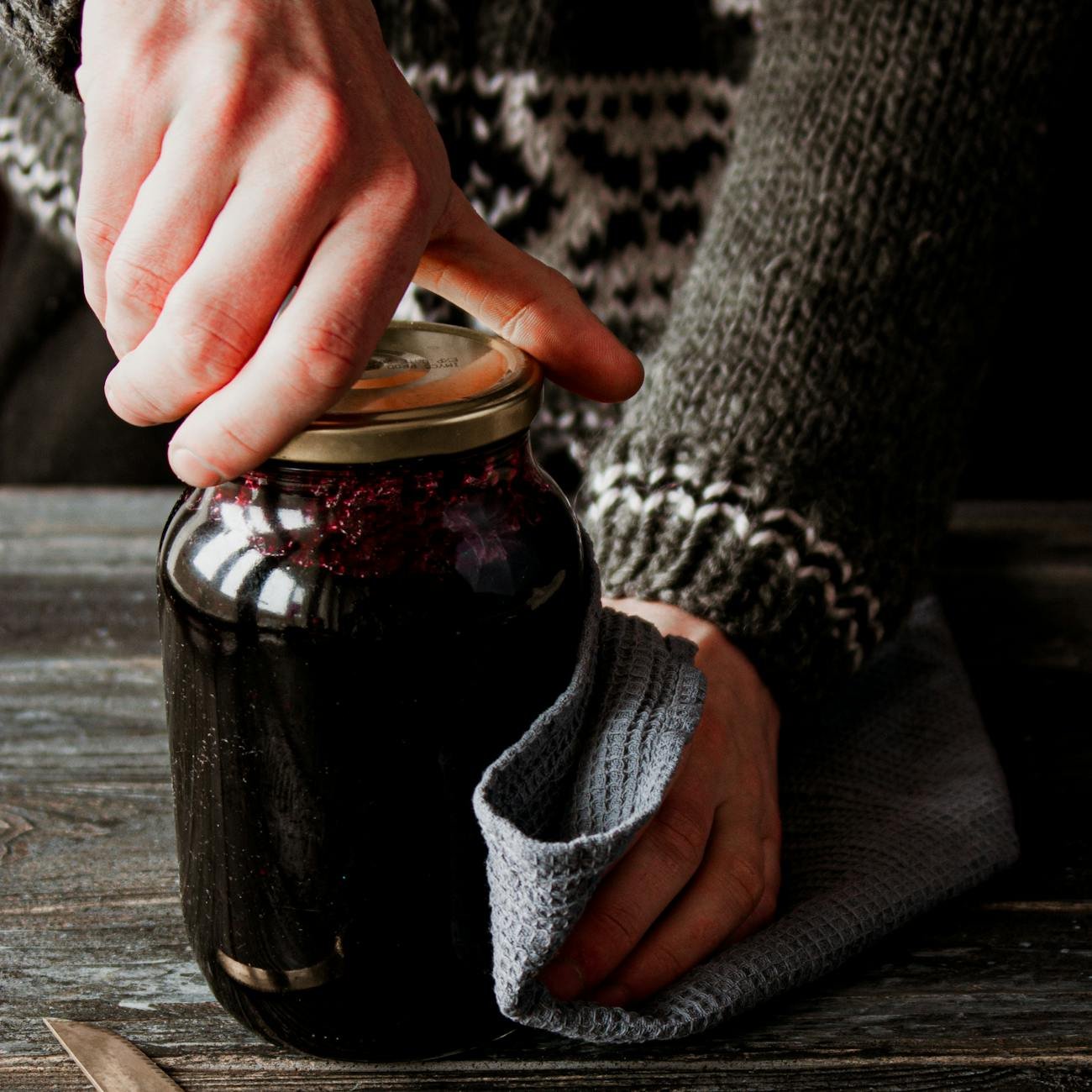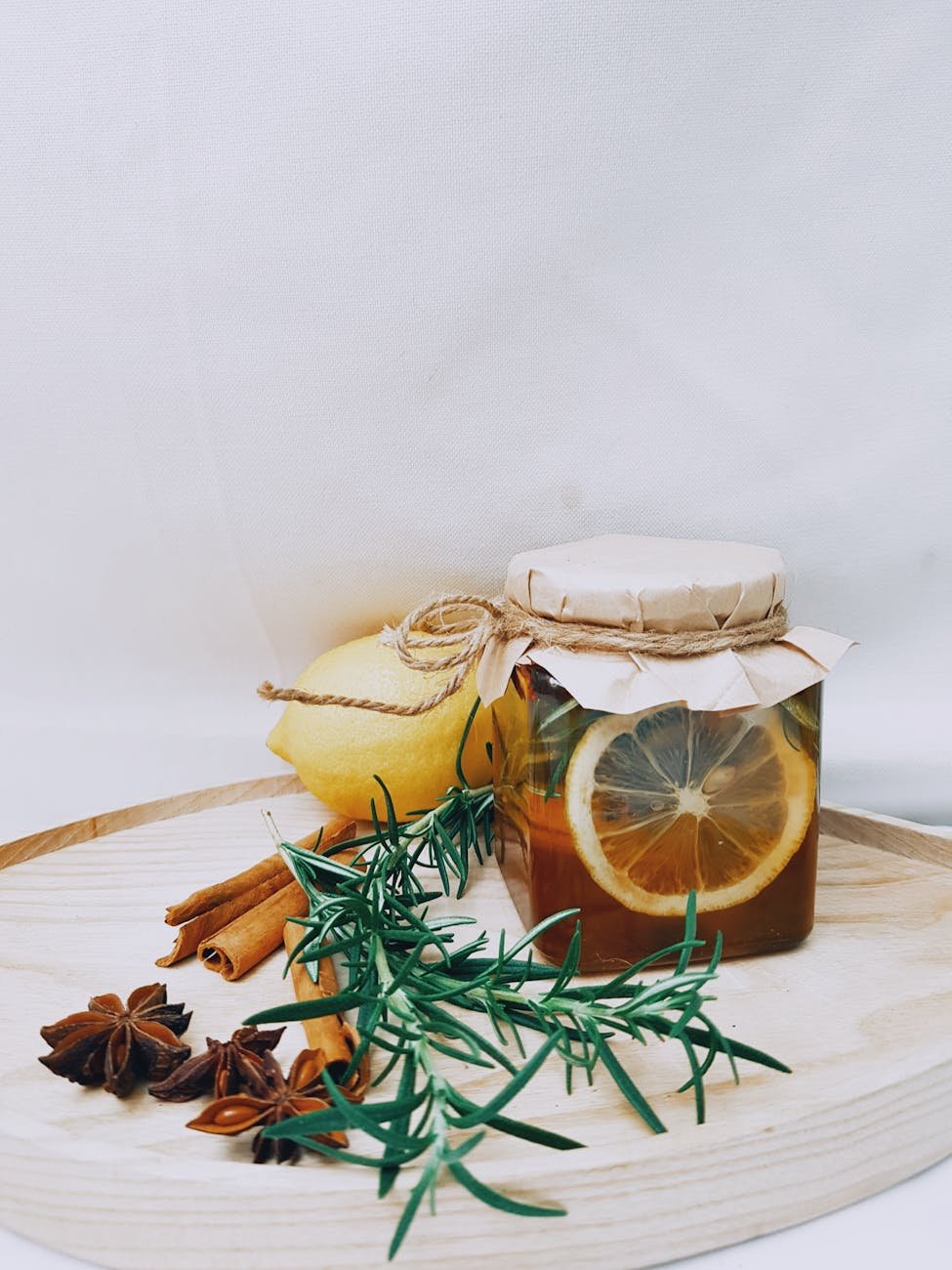Navigating the cold and flu season can be challenging, but the right cold and flu remedies can help you and your family stay healthy and recover faster. From soothing steam therapy to immune-boosting foods and gentle herbal remedies, natural solutions offer effective and nurturing support. In this guide, we’ll explore science-backed natural remedies, safe options for kids, and smart tips on what to avoid. Each remedy is designed to support your wellness naturally, so you’re better prepared to tackle seasonal illnesses with confidence.

Herbal Cold and Flu Remedies
When it comes to natural cold and flu remedies, certain herbs have gained a reputation as powerful allies against symptoms. Two standout options, backed by scientific research, are echinacea and elderberry. These herbs not only offer relief but may also help shorten the duration of colds.
Echinacea for Immune Support
Echinacea, a flowering plant, is widely known for its immune-boosting properties. Studies suggest that echinacea may reduce the chances of catching a cold and could shorten cold duration when taken at the onset of symptoms. Echinacea contains compounds that activate white blood cells, which play a key role in defending against infections. For cold and flu relief, you might try echinacea teas, capsules, or extracts. Many people swear by a warm cup of echinacea tea to help ease congestion and soothe sore throats.

Elderberry as a Cold and Flu Remedy
Elderberry, especially in syrup form, has long been used as a go-to cold and flu remedy. Packed with antioxidants, elderberries contain flavonoids that may reduce inflammation and boost immune response. Some research even suggests elderberry could help relieve cold and flu symptoms, including congestion and body aches, and may even cut recovery time by a few days. Whether taken as a syrup, gummy, or tea, elderberry is a tasty and easy addition to your natural remedy toolkit.

Combining Echinacea and Elderberry
For those seeking potent cold and flu remedies, combining echinacea and elderberry may offer enhanced benefits. Both herbs work well together to support the immune system and alleviate symptoms. Many natural health enthusiasts use products that blend these two herbs for a more comprehensive approach to managing colds. If you’re looking for ways to support your immune health naturally, echinacea and elderberry offer accessible and effective options for cold and flu relief.
These herbal cold and flu remedies can be a helpful part of your seasonal wellness routine, offering both relief and a boost to your immune defenses. While they may not replace conventional treatments, they are excellent additions to a natural health regimen.
Ginger and Turmeric: Anti-inflammatory Cold and Flu Remedies
When it comes to battling inflammation, ginger and turmeric are two spices you’ll want in your cold and flu remedies toolkit. Known for their powerful anti-inflammatory benefits, these ingredients help ease the discomfort that often comes with colds and flu. Adding them to your routine can make a big difference in how you feel during the season.
Why Ginger Works as a Cold and Flu Remedies
Ginger is a well-loved natural remedy, particularly for its warming effect and anti-inflammatory properties. It contains gingerol, a compound known to reduce inflammation and help soothe sore throats. Research shows that ginger can aid in relieving nausea and improving digestion, which is a bonus when your stomach isn’t feeling its best. You can enjoy it as a warm tea or add fresh ginger to smoothies, soups, or even a morning juice for a daily immune boost.
Turmeric for Fighting Inflammation
Turmeric is another fantastic addition to your list of cold and flu remedies. This vibrant yellow spice contains curcumin, an antioxidant known for its strong anti-inflammatory properties. Studies have shown that curcumin can help reduce symptoms of inflammation, potentially making you feel more comfortable while you recover. For optimal absorption, pair turmeric with a pinch of black pepper, which enhances its effects. Many people love golden milk, a warm turmeric-infused drink that’s easy to make and perfect before bedtime.

Simple Ways to Incorporate Ginger and Turmeric
Incorporating ginger and turmeric into your cold and flu remedies doesn’t have to be complicated. Start your day with a warm ginger tea or make a golden milk latte with turmeric. If you enjoy cooking, add fresh or powdered turmeric and ginger to soups, stir-fries, or marinades for a flavorful boost. You can also take them in supplement form, but always consult your doctor to ensure it’s right for you.
By adding ginger and turmeric to your daily routine, you’re supporting your body’s natural defenses. They’re not just delicious; they’re powerful, natural cold and flu remedies to help you get through the season comfortably.
Cold and Flu Remedies: Honey as a Natural Cough Suppressant
When it comes to soothing a persistent cough, honey is one of the simplest and most effective cold and flu remedies. With its natural soothing properties, honey can help calm a sore throat and reduce coughing, making it easier to rest and recover.
How Honey Helps Soothe Persistent Coughs
Honey’s thick consistency coats your throat, which can immediately reduce irritation. Its natural sugars also stimulate saliva production, which further soothes dryness and inflammation. Some studies even suggest that honey can be as effective as certain over-the-counter cough suppressants. Just a spoonful before bed or mixed into tea can work wonders, especially when coughing disrupts your sleep.
Easy Ways to Use Honey as Cold and Flu Remedies
For a quick remedy, try a spoonful of raw honey on its own. But if you want a little variety, mixing honey into warm herbal teas or hot water with lemon makes for a comforting, hydrating drink. You can even create a homemade cough syrup by mixing honey with ginger and lemon juice, both of which are also known for their immune-boosting benefits. Remember not to give honey to children under one year of age, as it can pose health risks for them.

Benefits of Honey Beyond Cough Relief
Besides calming coughs, honey offers other benefits as part of your cold and flu remedies. It has antibacterial properties that may help fight off some germs, and its antioxidants support your immune system. Plus, it’s gentle on the stomach, unlike some medications, making it ideal for sensitive stomachs.
Adding honey to your cold and flu remedies can bring quick relief in a natural, delicious way. With a range of uses and a soothing touch, honey is a simple remedy you’ll likely keep returning to whenever coughs come your way.
Cold and Flu Remedies: How Sleep Boosts Your Immune Defense
Getting quality sleep is one of the most powerful cold and flu remedies. When you’re well-rested, your immune system is more prepared to fend off illness. Sleep isn’t just about resting—it’s essential to a strong defense.
Why Sleep Is Vital for Your Immune System
During deep sleep, your body produces cytokines, proteins essential for fighting infections and inflammation. Without adequate sleep, cytokine production dips, weakening your immune response. Quality sleep acts like a natural barrier, protecting you from infections. A night of seven to eight hours can make all the difference in your body’s readiness.
Cold and Flu Remedies: Make Sleep a Priority
Turning sleep into a priority is one of the best cold and flu remedies you can practice. Start by creating a calming bedtime routine. Whether it’s a warm bath or a calming book, small habits help signal to your body that it’s time to rest. Avoid screens before bed, as they disrupt melatonin, the hormone that helps you fall asleep.
The Sleep-Immune Connection
Research shows that people who lack sleep are more susceptible to colds. Quality rest strengthens your body’s ability to detect and eliminate viruses and bacteria. So, by committing to consistent sleep, you’re actually helping your body guard itself against illness.
How to Improve Your Sleep Routine as Part of Cold and Flu Remedies
Creating a healthy sleep routine can be surprisingly simple. Try to go to bed and wake up at the same time each day. Limit caffeine in the afternoon and opt for herbal teas, which can promote relaxation. Sleep in a cool, dark room to support deeper rest, which has the most impact on immunity.
Better Sleep, Better Health
Ultimately, the better you sleep, the better your immune system can function. Quality sleep is one of the simplest, most effective cold and flu remedies out there. So, treat yourself to a full night of rest and watch how your body responds.
Making sleep a priority doesn’t just leave you feeling refreshed—it strengthens your defenses against cold and flu season.
Safe and Effective Cold and Flu Remedies for Kids
When it comes to treating little ones, finding safe cold and flu remedies is essential. Over-the-counter meds aren’t always ideal, so it’s a relief that natural options can help. From gentle teas to soothing baths, there are simple, effective remedies that can bring comfort to kids.
Gentle Herbal Teas for Kids
Herbal teas like chamomile or peppermint can be calming for children. They help relieve congestion and soothe sore throats, making them a gentle choice. Always keep the tea mild, and make sure it’s lukewarm for little ones.
Honey for Cough Relief
Honey works wonders for soothing coughs and sore throats. For kids over one year old, a spoonful of honey before bed can calm a persistent cough. Plus, it’s a sweet treat kids usually enjoy, making it easy to administer.
Warm Baths as Cold and Flu Remedies
A warm bath can do more than relax. Adding a few drops of eucalyptus oil (for children over two) or just letting steam build up can help open up stuffy noses. A little lavender in the bath can also help calm kids down for a good night’s sleep, which is crucial for recovery.
Hydration is Key
Keeping kids hydrated is one of the simplest cold and flu remedies, but it’s essential. Encourage water, diluted juice, or mild herbal teas to help them stay hydrated. Dehydration can worsen symptoms, so try to keep a water bottle nearby.
Gentle Vapor Rubs as Cold and Flu Remedies
For congestion, a gentle, kid-friendly vapor rub can make a big difference. Look for natural versions made specifically for children, as they contain milder ingredients. Applying a little on the chest or feet before bed can help ease nighttime coughing.
A Balanced Diet to Support Immunity
During colds and flu, a nutritious diet with plenty of fruits and veggies can support their immune system. Foods like oranges, berries, and spinach are packed with vitamins that can aid recovery.
Rest: The Ultimate Cold and Flu Remedies
Perhaps the most powerful remedy is rest. Encourage plenty of downtime, stories, or even a movie to let their bodies focus on fighting the infection. Rest is key to recovery, so keep things low-key.
These natural cold and flu remedies offer gentle ways to bring comfort and relief. With safe options tailored for kids, you can help them recover naturally, allowing their bodies to build resilience. Plus, these remedies are easy to incorporate, turning sick days into cozy days with mom or dad!
Stock Your Pantry with Immune-Boosting Essentials and Cold and Flu Remedies
To support your immune system year-round, keeping immune-boosting foods on hand is key. Whether you’re trying to prevent illness or manage symptoms, the right foods make a difference. From vitamin-packed fruits to nutrient-rich herbs, these pantry essentials can help with natural cold and flu remedies.
Citrus Fruits: Nature’s Vitamin C
Citrus fruits like oranges, lemons, and limes are loaded with vitamin C. This essential nutrient supports immune function and can help reduce cold symptoms. Adding a squeeze of lemon to your water or tea is an easy way to incorporate vitamin C throughout the day.
Ginger and Garlic: Powerful Natural Cold and Flu Remedies
Ginger and garlic both have strong anti-inflammatory properties that support immunity. While ginger soothes sore throats and nausea, garlic contains compounds that may help fend off infections. Keep them handy to add to soups, teas, or stir-fries.
Honey: A Pantry Staple for Soothing
Honey isn’t just for tea; it’s also an excellent cold and flu remedy. With antimicrobial and soothing properties, honey can help ease coughs and sore throats. You can add it to herbal tea, warm water, or even enjoy a spoonful on its own.
Berries for a Burst of Antioxidants
Berries like blueberries, strawberries, and raspberries are packed with antioxidants that help reduce inflammation. They’re great for boosting immunity, making them a perfect snack or topping for yogurt and oats.
Leafy Greens for Nutrient Density
Leafy greens like spinach and kale offer immune-supportive nutrients, including vitamins A, C, and E. They’re versatile, too—blend them into smoothies, toss them in salads, or add them to warm soups for a nutrient boost.
Nuts and Seeds for Healthy Fats
Nuts and seeds provide healthy fats, vitamin E, and zinc, all of which support immune function. Walnuts, almonds, sunflower seeds, and pumpkin seeds are all great options to snack on or sprinkle over meals.
Green Tea: A Soothing Drink with Antioxidants as Cold and Flu Remedies
Green tea is rich in antioxidants, which are helpful for immune support. Drinking a warm cup can be soothing, and it also provides a gentle caffeine boost. Plus, it pairs well with honey and lemon for extra cold and flu benefits.
Stocking up on these foods can make a huge difference when cold and flu season hits. With these natural cold and flu remedies in your kitchen, you’re ready to take on the season with a strong, resilient immune system!
Clear Sinuses with Steam Therapy
Steam therapy is one of the easiest, most soothing cold and flu remedies. Breathing in warm steam helps loosen mucus, making it easier to clear out congestion. It’s also incredibly relaxing, giving you a break from sinus pressure and stuffiness. Simply sit over a bowl of hot water, drape a towel over your head, and inhale deeply.
Essential Oils as Cold and Flu Remedies
Adding essential oils to your steam therapy can take sinus relief up a notch. Oils like eucalyptus, peppermint, and tea tree have decongestant properties. A few drops in your steaming bowl can help open airways, ease headaches, and even relax tense muscles. Just remember—essential oils are strong, so a little goes a long way.
Eucalyptus Oil for Congestion
Eucalyptus oil is a powerhouse when it comes to cold and flu remedies. Known for its cooling, refreshing scent, eucalyptus can help break down mucus and relieve congestion. With steam, this essential oil becomes even more effective. Just add two or three drops to your bowl and breathe deeply; it can work wonders in easing stuffiness.
Peppermint Oil for Headaches
If you’re battling headaches along with congestion, peppermint oil is ideal. Peppermint’s menthol content offers a natural cooling effect, soothing tension and pressure in the head. When combined with steam, it also acts as a gentle decongestant. Try it the next time your head feels foggy or tight!
Lavender Oil for Relaxation
Dealing with cold symptoms can disrupt your sleep, leaving you tired and cranky. Lavender oil is perfect for relaxation and stress relief. Its gentle scent helps calm nerves, and in steam, it can also ease breathing. Add a couple of drops to your steam session before bed to relax and prepare for a good night’s sleep.
Steam therapy, combined with essential oils, offers a simple, effective way to address cold and flu symptoms. Next time you’re feeling congested or have a headache, try this natural approach—you might be surprised at how well it works!
Cold and Flu Remedies to Skip
When you’re sick, some natural remedies can do more harm than good. While certain foods and supplements support recovery, others can interfere with your immune response. Avoiding the wrong remedies can make a big difference.
Skip Excessive Vitamin C
Yes, vitamin C is great for immunity, but too much can cause digestive issues. Rather than overdosing, aim for balanced amounts from food sources like citrus. Overdoing it can upset your stomach, which no one wants while already sick.
Avoid Overusing Echinacea
Echinacea is known for boosting immunity, but it’s not meant for extended use. Overdoing it may strain your liver and possibly worsen symptoms. Use it at the onset of a cold, but don’t rely on it daily.
Beware of Sugary Drinks
While honey is soothing, sugary beverages can weaken your immune system. Avoid soda, candy, and even fruit juice when you’re sick, as these can increase inflammation. Instead, stick to water and herbal teas.
Avoid Alcohol
Alcohol is another big no-no when dealing with cold and flu symptoms. It dehydrates your body, making it harder to recover. Plus, it can make cold symptoms feel worse. Swap that nightcap for a warm tea to stay hydrated and help ease congestion.
Limit Dairy Products
For some, dairy can increase mucus production, which worsens congestion. If you notice that dairy makes you feel stuffier, skip it while you’re sick. Opt for almond or oat milk instead of traditional dairy products.
Say No to Spicy Foods
While you may think spice clears congestion, it can actually irritate your throat. Strong spices can also increase stomach discomfort. Try milder options like ginger if you’re craving something warming but gentle.
Avoid Stressful Workouts
Working out while sick is tempting, but high-intensity exercise can hinder recovery. Light stretching or walking is fine, but let your body rest to conserve energy for healing.
Choose Cold and Flu Remedies Wisely for Faster Recovery
Knowing which cold and flu remedies to avoid is just as important as finding the right ones. With a few smart choices, you can shorten your sick days and get back on your feet faster.
Recognizing When Cold and Flu Remedies Aren’t Enough
Sometimes, even the best home remedies just won’t cut it. Knowing when to seek professional help can make all the difference in recovery and prevent worsening symptoms.
Persistent High Fever
If a high fever doesn’t drop after a few days, it might be time to check in with a doctor. Fever that lingers could signal a more serious infection that requires medical intervention.
Shortness of Breath or Chest Pain
Breathing issues or chest discomfort aren’t symptoms to ignore. While mild colds can make you congested, if you feel breathless or experience chest pain, professional help is essential.
Extreme Fatigue
If you’re beyond the usual fatigue, it’s a good idea to consult a healthcare provider. Extreme tiredness may indicate complications, especially if paired with other intense symptoms.
When in Doubt, Reach Out
Remember, cold and flu remedies are wonderful first steps, but knowing when they’re not enough is crucial. Seeking medical advice early can help you recover faster and avoid complications.
Conclusion
Cold and flu season doesn’t have to mean endless discomfort and downtime. By incorporating these natural cold and flu remedies into your routine, you can ease symptoms, shorten recovery time, and even prevent illness. Home remedies like honey for coughs, steam therapy for congestion, and essential immune-boosting foods make a big difference without relying on harsh chemicals.
It’s equally essential to know when remedies aren’t enough, ensuring timely medical care if needed. And don’t forget the value of restful sleep and balanced nutrition, as both play a major role in maintaining a strong immune response. Embrace these holistic remedies, and you’ll be well on your way to a healthier, happier season—naturally.

